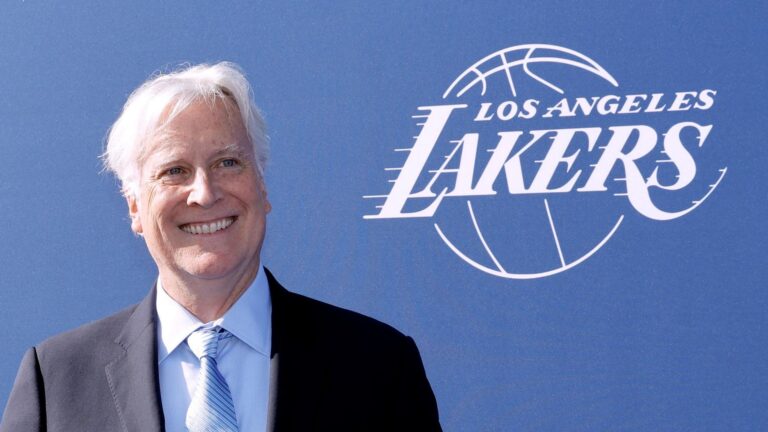Los Angeles Lakers’ $10 Billion Acquisition Redefines U.S. Sports Franchise Valuations
Historic $10 Billion Sale Elevates Lakers to Unprecedented Financial Heights
The Los Angeles Lakers have recently been acquired in a groundbreaking deal valued at an astonishing $10 billion, setting a new record for sports franchise sales in the United States. This monumental transaction eclipses all prior sales, highlighting the escalating worth and widespread appeal of professional sports teams nationwide. Beyond cementing the Lakers’ legacy as a premier basketball organization, this acquisition marks a pivotal evolution in the financial landscape of sports ownership.
Several critical elements have propelled this landmark valuation:
- Broadcasting and Media Rights: Expanding contracts with national and global networks have significantly increased revenue streams.
- Global Merchandise and Sponsorship Growth: The franchise’s international merchandise sales and strategic partnerships continue to surge.
- Enhanced Venue Experience: The Crypto.com Arena’s upscale hospitality and rising attendance figures contribute to robust game-day income.
| Team | Sale Price | Year |
|---|---|---|
| Los Angeles Lakers | $10B | 2024 |
| New York Knicks | $5B | 2020 |
| Dallas Cowboys | $8B | 2019 |
This unprecedented sale is anticipated to ignite increased investment activity within the sports franchise sector, potentially sparking competitive bidding for other elite teams as investors seek to leverage the expanding financial potential of top-tier sports properties.
Financial Breakdown: Understanding the $10 Billion Valuation
The Lakers’ $10 billion acquisition represents a transformative moment in the valuation of professional sports teams, reflecting not only the franchise’s rich heritage but also its formidable economic influence. This deal encapsulates a blend of restored brand prestige, amplified media rights, and lucrative sponsorship deals, all of which are expected to yield substantial returns for the new ownership.
Key financial drivers behind this record-setting transaction include:
- Media Revenue Growth: New and expanded broadcasting agreements, including streaming platforms, are projected to increase annual revenues by approximately 15%.
- International Market Expansion: The Lakers’ growing global fanbase is opening diversified revenue streams through licensing and merchandise sales, with an estimated 20% yearly growth.
- Facility Enhancements: Upgrades to the Crypto.com Arena and premium hospitality services are expected to boost fan engagement and generate an additional 10% revenue growth annually.
| Financial Component | Effect | Expected Annual Growth |
|---|---|---|
| Media Rights | Significant incremental revenue | 15% |
| Merchandising | Global licensing expansion | 20% |
| Venue Improvements | Enhanced fan experience and sales | 10% |
Market Impact: How the Lakers’ Sale Influences Future Sports Franchise Deals
The $10 billion Lakers acquisition is reshaping the valuation framework for major league sports teams, signaling a robust investor appetite for franchises as long-term, high-yield assets. Modern franchise valuations increasingly hinge on diversified income sources such as global media rights, merchandise, and digital innovations rather than solely on athletic performance.
Emerging trends likely to shape upcoming franchise sales include:
- Expanded Media Collaborations: Broader and more lucrative broadcasting agreements will continue to elevate team valuations.
- Technological Advancements: Integration of blockchain, NFTs, and immersive virtual fan experiences are creating fresh revenue streams.
- International Brand Growth: Teams cultivating global fanbases are commanding premium prices through increased sponsorship and licensing deals.
| Factor | Market Role | Future Prospects |
|---|---|---|
| Media Rights | Primary revenue driver | Growth via streaming and digital platforms |
| Digital Innovation | Emerging income sources | Expansion of fan engagement technologies |
| Globalization | Expands fan demographics | Rising international sponsorship opportunities |
Investor Insights: Navigating the High-Stakes Sports Franchise Market
For investors targeting the upper echelon of sports franchise ownership, strategic evaluation and timing are crucial. The Lakers’ record-setting $10 billion sale exemplifies the surging demand and resilience of premier sports assets in the U.S. market. Prospective buyers should focus on franchises boasting robust brand recognition, deep fan engagement, and multiple revenue streams beyond ticket sales, including media rights, merchandising, and sponsorships.
Essential factors to consider for maximizing investment returns include:
- Geographic and Demographic Advantages: Teams located in populous, diverse metropolitan areas generally achieve higher valuations.
- Operational Excellence: Assessing management effectiveness and cost efficiency is vital for sustainable profitability.
- Growth Trajectory: Leagues with expanding media contracts and international fanbases offer significant upside potential.
- Regulatory Landscape: Understanding league governance and ownership rules is critical for long-term strategic planning.
| Investment Factor | Significance | Illustrative Example |
|---|---|---|
| Brand Equity | Drives sponsorship and merchandise sales | Lakers’ global brand recognition |
| Diverse Revenue Streams | Reduces dependency on ticket sales | Multi-platform broadcasting rights |
| Fan Engagement | Ensures sustained loyalty and growth | High season ticket renewal rates |
Looking Ahead: The Future of Sports Franchise Ownership
The historic $10 billion purchase of the Los Angeles Lakers not only redefines the ceiling for U.S. sports franchise valuations but also highlights the expanding financial clout and international allure of professional basketball. As the most expensive sports team sale in American history, this transaction reflects evolving trends in sports investment and ownership, pointing toward a dynamic and prosperous future for the NBA and its flagship franchises. Industry stakeholders will be closely monitoring how this landmark deal influences market valuations and strategic approaches within the broader sports ecosystem in the coming years.




